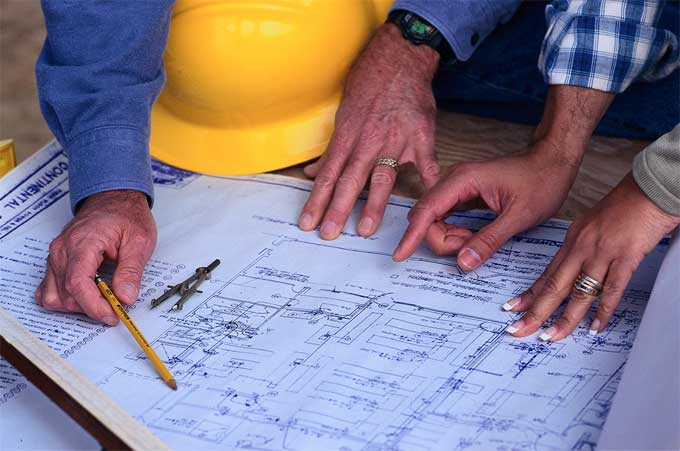
A brief guide to the Construction Planning

The integration of all your construction operations and phases necessary to finish a specific construction project at a certain budget and time frame depends heavily on construction planning and scheduling. Despite serving separate purposes, scheduling and planning are essential to effective project management.
The selection of pertinent rules, methods, and processes to accomplish your project goals is essentially what construction planning entails. Construction scheduling converts your project's scope, duration, cost, and quality action plans into a useful calendar.
Making sure that your construction project is finished on time and within budget requires careful planning and scheduling.
A carefully thought-out construction schedule not only specifies your work's speed but also how it will be completed. It also aids in defining your procedures, techniques, and steps to follow while putting items in place.
Your efficiency and production are maximized if you methodically and in advance plan your building timetable. It is simple to sequence work and guarantees that you have the right quality and amount of materials utilized in each phase thanks to your construction schedule, which also enables you to optimize your quality control procedures.
The acquisition of materials and resources is proceeding as planned since you can utilize your timetable to buy the necessary items at the precise moment you need them. Utilizing your schedule to keep track of which employee is there and ensure that safety procedures are being correctly followed can increase safety performance.
Importance of Construction Planning
Making sure that your construction project is finished on time and within budget requires careful planning and scheduling.
A carefully thought-out construction schedule not only specifies your work's speed but also how it will be completed. It also aids in defining your procedures, techniques, and steps to follow while putting items in place.
Your efficiency and production are maximized if you methodically and in advance plan your building timetable.
It is simple to sequence work and guarantees that you have the right quality and amount of materials utilized in each phase thanks to your construction schedule, which also enables you to optimize your quality control procedures.
The acquisition of materials and resources is proceeding as planned since you can utilize your timetable to buy the necessary items at the precise moment you need them.
Utilizing your schedule to keep track of which employee is there and ensure that safety procedures are being correctly followed can increase safety performance.
A dependable construction schedule also enables you to distribute your time more effectively among all the project stakeholders, which improves their ability to organize their operations. Gaining complete control over your project helps you prevent costly shocks and delays by reducing unpleasant surprises.
Types of Planning
Strategy: It entails selecting the most important project goals. The project owner's corporate planners often handle strategic planning.
The master construction execution plan is developed by the project teams in accordance with the parameters established in the strategy and contracting plans, and the owner choose which project to build and the timeframe for completion.
Execution: In order to achieve the project's strategic goals, requires careful preparation on the part of the construction teams.
The project teams must first answer a number of questions in order to produce the construction master plan, which takes into account a variety of criteria before they can define the building timetable.
Discussing schedules: It entails a thorough operational plan with timing determined by the strategic goals.
Preliminary steps in Planning for any construction
Techniques and procedures for selecting technologies: Your project's implementation will depend greatly on the technologies and building techniques you choose.
The cost and time required to complete the activities included in the construction process will directly depend on whether you choose to construct concrete structures on-site or purchase pre-fabricated ones.
Listing the activities: Determining different work responsibilities is essential when establishing the timetable of your construction operations since construction planning influences your construction scheduling.
By doing so, you may schedule the necessary sequences and important pathways between jobs as well as estimate the resources that are required. Although it is difficult, defining acceptable work tasks is necessary for using formal scheduling procedures and for standardizing certain jobs.
Relationships between activities and critical flow: The connections between work activities can now be specified after they have been defined. Activities must occur in specific sequences because tasks and activities have a relationship of precedence.
Duration of work: Keep in mind that each job activity has a specific time length, and it is on the basis of these durations that the timetable is created.
The established precedence relations and duration estimations are the foundations of all formal scheduling. Avoiding delays requires a realistic prediction and previous data on specific tasks and activities.
To learn more, watch the following video tutorial.
Video Source: Factual Civil Engineering
Setting up a smooth workflow: Each of the highlighted tasks may be coded, allowing for improved information flow and organization efforts to be integrated.
You may standardize the categories and descriptions of things and activities between projects and among project stakeholders by using a coding system. Additionally, previous data on the expense, output, and duration of your actions may be easily retrieved thanks to coding systems.
Wrapping it up
Careful preparation is required to build a timetable that will enable you to deliver your projects on time and within budget if you want to be successful with your construction projects.
It takes a lot of time to plan and arrange a construction project, but the time you will save when working is more than the time you spent preparing and arranging.


